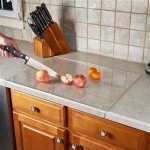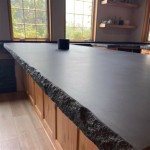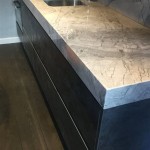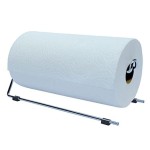Best Practices to Clean Quartz Countertops
Quartz countertops have gained significant popularity in recent years due to their durability, aesthetic appeal, and relatively low maintenance requirements. This engineered stone, composed of natural quartz crystals and resins, offers a non-porous surface that resists staining, scratching, and bacterial growth more effectively than many natural stone alternatives. However, even with its inherent resilience, quartz countertops require regular cleaning to maintain their beauty and longevity. Understanding the best methods for cleaning quartz is crucial to preventing damage and ensuring the surface remains pristine for years to come. The following information outlines effective cleaning techniques and preventative measures to optimize the maintenance of quartz countertops.
The routine cleaning of quartz countertops is generally straightforward and can be accomplished with minimal effort. The key is to address spills and messes promptly to prevent them from setting and potentially causing discoloration. A daily wipe-down should become standard practice, especially in high-traffic areas like the kitchen. This regular attention helps to remove crumbs, dust, and other debris that can accumulate throughout the day. By adhering to a simple daily cleaning routine, more intensive cleaning methods can be minimized, preserving the integrity of the quartz surface over time.
Proper cleaning supplies are essential for maintaining the appearance of quartz countertops. Harsh chemicals and abrasive scrubbing tools can permanently damage the surface, leading to a dull finish or even scratches. It is always advisable to consult the manufacturer’s recommendations regarding approved cleaning products. In most cases, a simple solution of mild dish soap and warm water is sufficient for daily cleaning. This gentle mixture effectively lifts dirt and grime without the risk of causing harm to the countertop. It’s important to choose a non-abrasive cloth or sponge for wiping the surface to prevent microscopic scratches that can gradually diminish the countertop's shine. Microfiber cloths are often recommended for their ability to trap dirt and their gentle texture.
Daily Cleaning Routine for Quartz Countertops
The daily cleaning routine for quartz countertops should be a quick and efficient process. Begin by gathering the necessary supplies: mild dish soap, warm water, a clean, non-abrasive cloth or sponge, and a dry cloth for wiping. Mix a small amount of dish soap with warm water in a bucket or spray bottle. Dampen the cloth or sponge with the soapy water and gently wipe down the entire surface of the countertop. Pay particular attention to areas where spills or messes have occurred. After wiping the surface with soapy water, use a clean, damp cloth to rinse away any soap residue. Finally, dry the countertop thoroughly with a clean, dry cloth to prevent water spots and maintain its shine. This routine, if followed consistently, will help to keep the quartz countertop looking its best and prevent the buildup of stubborn stains.
For slightly more difficult messes, consider using a dedicated quartz cleaner. Many manufacturers produce cleaners specifically formulated for quartz surfaces, which can provide a deeper clean without damaging the material. Always follow the instructions on the product label carefully. Avoid using generic household cleaners, especially those containing bleach, ammonia, or solvents, as these can etch or discolor the quartz surface. If you are unsure about the suitability of a particular cleaner, test it on an inconspicuous area of the countertop before applying it to the entire surface. This precaution can help prevent potential damage.
While quartz is generally resistant to staining, certain substances can cause discoloration if left on the surface for extended periods. These include red wine, coffee, tea, fruit juices, and oily foods. The longer these substances remain in contact with the quartz, the greater the risk of staining. Therefore, it is crucial to clean up spills immediately. Blot the spill with a clean cloth to absorb as much of the liquid as possible. Then, clean the area with soapy water as described above. For stubborn stains, a paste of baking soda and water can be applied to the affected area and left to sit for a few minutes before being wiped away with a damp cloth. However, it is important to avoid excessive scrubbing, as this can damage the surface.
Heat resistance is another important consideration when caring for quartz countertops. While quartz is more heat-resistant than some other countertop materials, it is still susceptible to damage from high temperatures. Placing hot pots, pans, or dishes directly on the quartz surface can cause thermal shock, leading to cracks or discoloration. Always use trivets or hot pads to protect the countertop from heat. Similarly, avoid placing appliances that generate heat, such as toasters or coffee makers, directly on the quartz surface for extended periods. These simple precautions can help prevent heat-related damage and extend the lifespan of the countertop.
Addressing Stubborn Stains on Quartz
Despite diligent cleaning efforts, stubborn stains may occasionally occur on quartz countertops. When faced with a persistent stain, it is essential to use gentle yet effective methods to remove it without damaging the surface. One approach is to create a paste of baking soda and water. Apply the paste to the stained area and let it sit for a few minutes. Then, gently scrub the area with a soft cloth or sponge, working in a circular motion. Rinse the area thoroughly with clean water and dry it with a clean cloth. For more severe stains, a specialized quartz cleaner may be necessary. Always follow the manufacturer's instructions carefully when using these cleaners. Avoid using abrasive cleaners or scouring pads, as these can scratch the surface. If the stain persists despite these efforts, it may be necessary to consult a professional stone restoration company for assistance. They have specialized tools and techniques to remove stubborn stains without causing further damage.
Another effective method for removing stubborn stains involves using rubbing alcohol. Dampen a clean cloth with rubbing alcohol and gently rub the stained area. The alcohol can help to dissolve the stain and lift it from the surface. After applying the alcohol, rinse the area thoroughly with clean water and dry it with a clean cloth. This method is particularly effective for removing ink stains, grease stains, and other oily residues. However, it is important to use rubbing alcohol sparingly and only on the affected area, as excessive use can dry out the quartz surface. Always test the alcohol on an inconspicuous area of the countertop before applying it to the stain to ensure it does not cause any discoloration or damage.
Prevention is always better than cure when it comes to maintaining quartz countertops. By taking preventative measures, you can minimize the risk of stains and other damage. Use cutting boards when preparing food to protect the countertop from scratches and knife marks. Avoid placing acidic substances, such as lemon juice or vinegar, directly on the quartz surface, as these can etch the stone. Always wipe up spills immediately to prevent them from setting and causing stains. Consider using placemats and coasters to protect the countertop from spills and heat. By adopting these preventative measures, you can keep your quartz countertops looking pristine for years to come.
Furthermore, it is beneficial to understand the composition of quartz countertops and how it influences their maintenance. Quartz countertops are engineered stone, which means they are manufactured using a combination of crushed quartz crystals and resins. The resins bind the quartz crystals together and create a non-porous surface. This non-porous nature is what makes quartz countertops so resistant to staining and bacterial growth. However, the resins can also be susceptible to damage from heat, chemicals, and abrasive cleaners. Therefore, it is crucial to use cleaning products and techniques that are specifically designed for quartz surfaces to avoid damaging the resins. By understanding the unique properties of quartz countertops, you can better care for them and maintain their beauty and durability.
Preventative Measures for Quartz Countertop Longevity
Extending the lifespan of quartz countertops relies heavily on preventative maintenance. One key aspect is the consistent use of cutting boards during food preparation. Direct contact with knives can lead to scratches, which, over time, can dull the surface. Similarly, using trivets or hot pads under hot cookware is essential to prevent heat-related damage. Sudden temperature changes can weaken the resin binders, leading to cracks or discoloration. Spills should be addressed immediately. Leaving liquids, especially acidic ones like citrus juices and vinegar, to sit on the surface can cause etching. Regularly wiping down countertops with a mild soap and water solution is a simple yet effective way to prevent the buildup of grime and stains. Consider the placement of appliances that generate heat, such as coffee makers and toasters, and ensure they are not directly on the quartz to mitigate potential heat damage. These proactive steps significantly contribute to preserving the integrity and appearance of quartz countertops.
Another aspect of preventative care involves the choice of cleaning products. Avoid using abrasive cleaners, scouring pads, or harsh chemicals, such as bleach, ammonia, or solvents. These substances can damage the surface, leading to scratches, dullness, or discoloration. Instead, opt for mild dish soap and warm water or a dedicated quartz cleaner. When using a dedicated cleaner, always follow the manufacturer's instructions carefully. It is also important to use a soft cloth or sponge for cleaning. Microfiber cloths are particularly effective at trapping dirt and grime without scratching the surface. By choosing the right cleaning products and tools, you can safeguard your quartz countertops from damage and maintain their pristine condition.
Long-term care of quartz countertops also includes understanding the potential impact of sunlight exposure. While quartz itself is resistant to fading, prolonged exposure to direct sunlight can cause the resins to yellow over time. This is particularly noticeable in lighter-colored quartz countertops. To mitigate this risk, consider using window coverings, such as blinds or curtains, to block direct sunlight during peak hours. Applying a UV-resistant sealant to the countertop can also help to protect it from sun damage. These measures can help to preserve the color and appearance of your quartz countertops and prevent them from fading or yellowing over time.
Finally, it is important to note that not all quartz countertops are created equal. The quality of the quartz crystals and resins used in their construction can vary significantly from one manufacturer to another. Higher-quality quartz countertops are typically more durable, stain-resistant, and heat-resistant than lower-quality ones. Therefore, it is essential to choose a reputable manufacturer when purchasing quartz countertops. Do your research and read reviews to ensure that you are investing in a high-quality product that will stand the test of time. With proper care and maintenance, a high-quality quartz countertop can provide years of beauty and functionality.
Maintaining the Shine and Lustre of Quartz
Preserving the shine and lustre of quartz countertops requires consistent effort and the avoidance of damaging practices. Regular cleaning with a mild soap and water solution is fundamental. This prevents the accumulation of dirt and grime that can dull the surface over time. Avoid using abrasive cleaners or scouring pads, as these can create microscopic scratches that diminish the countertop's reflective properties. Drying the surface thoroughly after cleaning is also crucial to prevent water spots, which can detract from the overall appearance. Furthermore, consider using a dedicated quartz polish or sealant to enhance the shine and protect the surface from stains. These products can help to create a protective barrier that repels spills and makes cleaning easier. However, it is important to follow the manufacturer's instructions carefully when using these products. By adhering to these practices, the original shine and beauty of quartz countertops can be sustained.
Over time, quartz countertops may develop a slight haze or film, particularly in areas with hard water. This film is caused by mineral deposits that accumulate on the surface. To remove this film, try using a solution of equal parts white vinegar and water. Apply the solution to the affected area and let it sit for a few minutes. Then, gently scrub the area with a soft cloth or sponge. Rinse the area thoroughly with clean water and dry it with a clean cloth. Vinegar is a mild acid that can effectively dissolve mineral deposits without damaging the quartz surface. However, it is important to use vinegar sparingly and only on the affected area, as excessive use can etch the stone over time. Always test the vinegar solution on an inconspicuous area of the countertop before applying it to the entire surface.
In conclusion, the best approach to cleaning quartz countertops involves a consistent combination of preventative measures, gentle cleaning techniques, and appropriate product selection. By adhering to these principles, homeowners can ensure the long-term beauty and durability of their quartz surfaces.

Best Guide For Cleaning And Maintaining Quartz Countertops Torera George

Cleaning And Caring For Quartz Countertops A Step By Guide Granite Selection

The Best Guide For How To Clean Quartz Countertops

How To Clean Quartz Countertops Safely Grace In My Space

Are You Cleaning Quartz Countertops Wrong

The Best Guide For How To Clean Quartz Countertops

Best Ways To Clean Quartz Countertops Pro Housekeepers

How To Clean And Maintain Quartz Countertops

How To Clean Quartz Countertops

How To Polish Quartz Countertops Granite 4 Less








